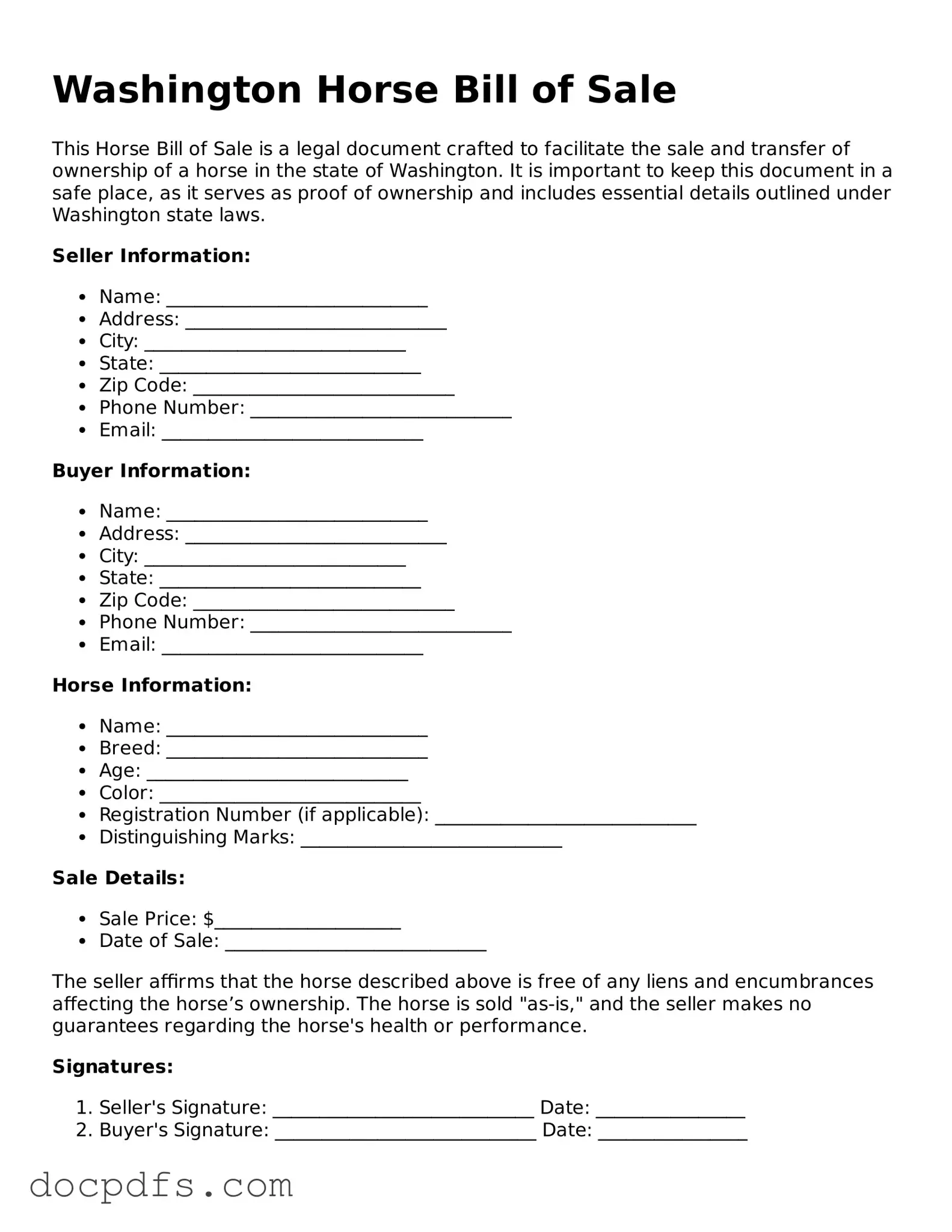The Washington Horse Bill of Sale form is a legal document used to transfer ownership of a horse from one party to another in the state of Washington. This form outlines the details of the sale, including information about the horse, the seller, and the buyer. It serves as proof of the transaction and can be important for both parties in case of disputes or for future reference.
Why do I need a Horse Bill of Sale?
A Horse Bill of Sale is essential for several reasons:
-
It provides legal protection for both the buyer and seller.
-
It helps establish clear ownership of the horse.
-
It can be used for tax purposes or to prove the horse's value.
-
It may be required by insurance companies or for registration with breed associations.
The form should include the following key details:
-
The names and addresses of both the seller and the buyer.
-
A complete description of the horse, including its breed, age, color, and any identifying marks.
-
The sale price and payment terms.
-
The date of the sale.
-
Any warranties or guarantees provided by the seller.
While it's not legally required to have a Horse Bill of Sale in Washington, it is highly recommended. Having this document protects both parties and provides a clear record of the transaction. In some cases, specific organizations or registries may require proof of sale for registration purposes.
Can I create my own Horse Bill of Sale?
Yes, you can create your own Horse Bill of Sale. However, it is important to ensure that all necessary information is included and that it complies with Washington state laws. Many templates are available online, which can help guide you through the process. Just make sure to review the document carefully before signing.
What happens if there are disputes after the sale?
If disputes arise after the sale, the Horse Bill of Sale serves as a crucial piece of evidence. It can clarify the terms of the sale and any warranties that were made. If necessary, the parties may need to seek legal advice or mediation to resolve the issue. Having a well-drafted bill of sale can often prevent misunderstandings and disputes from occurring in the first place.
Notarization is not required for the Horse Bill of Sale in Washington. However, having the document notarized can add an extra layer of security and legitimacy to the transaction. It may also help in case of future disputes, as it verifies the identities of the parties involved and the authenticity of the signatures.
You can obtain a Horse Bill of Sale form from various sources. Many websites offer free or low-cost templates that you can download and customize. Additionally, local equestrian organizations, veterinary clinics, or legal professionals may provide forms or guidance on creating one. Always ensure that the form you use is specific to Washington state to meet local requirements.

